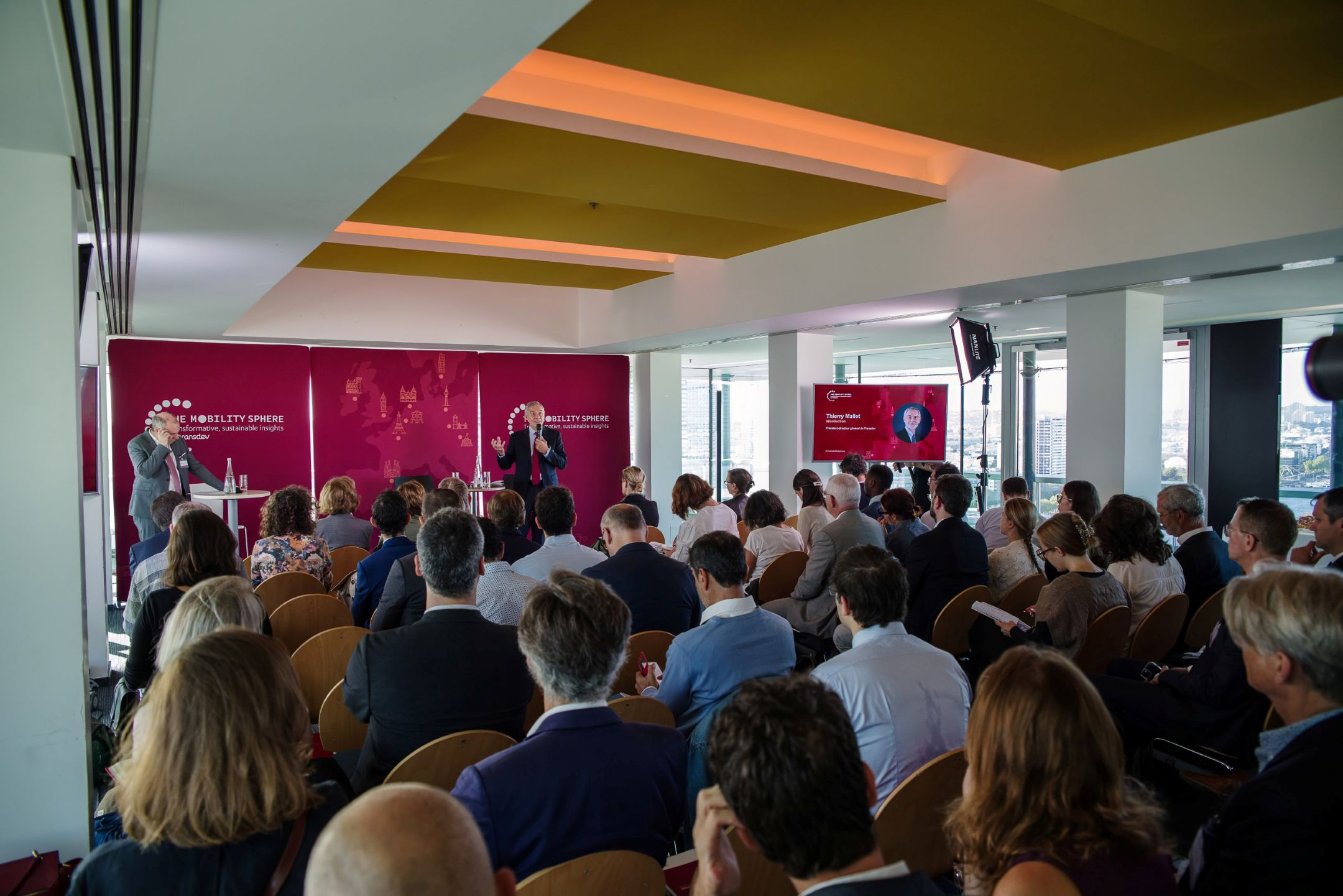
Financing the ecological transition in Europe
The sixth edition of The Mobility Sphere was held at the Maison de la Radio in Paris on Monday, September 15th, 2025. Following on from our previous events, this meeting focused on a theme that is as strategic as it is urgent: “Financing the ecological transition in Europe.”
With public finances under pressure in many Member States and climate imperatives intensifying across the continent, this event explored concrete strategies to support the decarbonization of mobility at the European level, strengthen the resilience of territories, and accelerate efforts to adapt to growing environmental challenges.
Bringing together leading economic and institutional players, this meeting was an opportunity to exchange views with Carole Labbé, economic advisor to the European Commission Representation in Paris, and Cécile Maisonneuve, an expert on energy transition issues. The discussion was moderated by François Gemenne, lead author for the IPCC and scientific advisor to The Mobility Sphere.
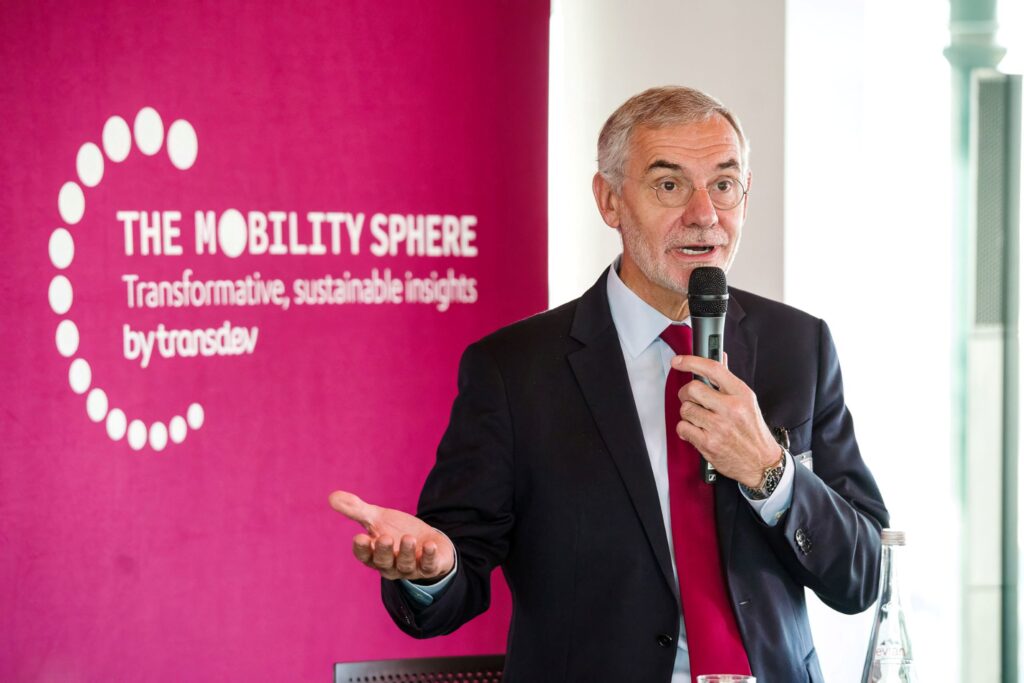
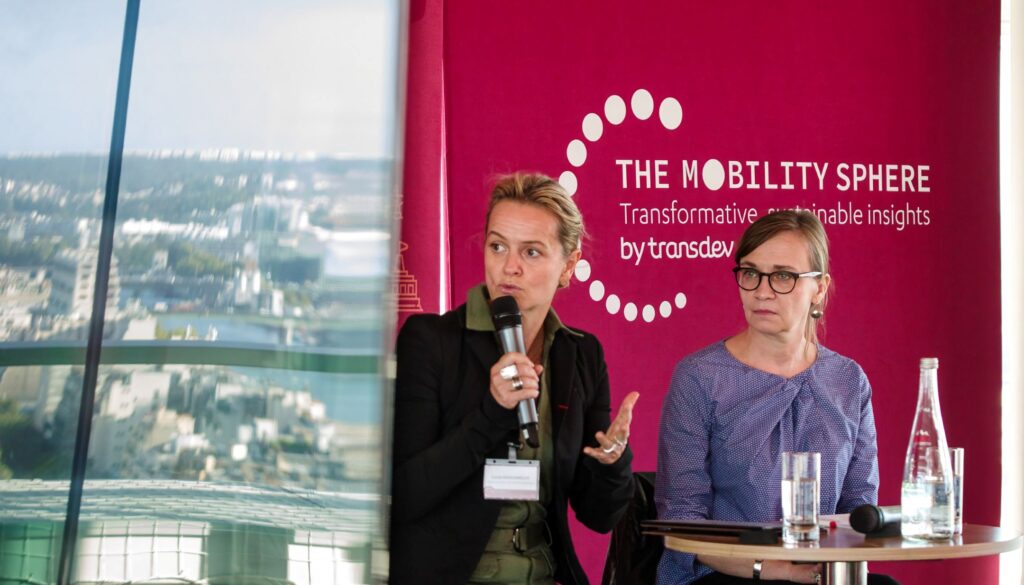
If I had a little money … (all the things I could do)
How to finance the EU’s climate transition in times of government deficits, geopolitical challenges and mounting defense costs
Most policy makers agree that European countries need to accelerate their climate efforts. However, growing concerns over financing – stemming from stretched government finances, growing defense spending, the end of “cheap” money and a renewed focus on EU competitiveness – are raising questions about how to fund the climate transition.
Experts, policymakers, and industry leaders got together at a Mobility Sphere event in Paris in September 2025 to examine the challenges in mobilizing funds in an era marked by fiscal constraints and geopolitical uncertainties – and to look for ways forward.
“You get the impression that everybody is chasing the same money,” said Francois Gemenne, IPCC Lead Author and Scientific Advisor to The Mobility Sphere.
“At European level, other priorities seem to have disrupted the Green Deal agenda, and now everybody is talking about competitiveness. And obviously we’re also talking about how to finance Europe’s defense,” he told the conference.
Gemenne said the climate transition needs an additional 66 billion euros annually over the next five years, based on an estimate by economists Jean Pisani-Ferry et Selma Mahfouz1. “And it’s obvious we’re not going to find this money in the governments’ coffers.”
But it must be found nonetheless, urged Transdev CEO Thierry Mallet. “The climate crisis is no longer a distant threat; it is a daily reality."
Adaptation measures “cost money”, Mallet said. “The budget must be local, because adaptation is about trying to preserve the environment where we live.
However, a troubling trend is emerging: energy policies are losing political prominence. "The debate now revolves around the cost of living and competitiveness, not the transition," Mallet observed.
With economic challenges comes resistance among European populations, he said. “French citizens express reluctance to bear additional costs, especially with ambitions like zero-emission zones and electric vehicles.”
Those hurdles had translated into a “massive crisis among manufacturers” of sustainable mobility solutions. Currently, only Chinese manufacturers can meet the demand for new electric buses, Mallet said. “The European industry isn’t ready.”
But it’s not too late to catch up. Europe is not engaged in a “speed race”, Mallet said. “The idea is not to achieve everything in three years. The energy transition is a 20-year operation. And the last miles are going to be the most difficult.”
What is needed is a “clear pathway, a desirable pathway” to put clean mobility at the center, he urged.
Cécile Maisonneuve, an energy transition expert, agreed that “everyone” needs to be part of the transition in mobility if it is to succeed.
“Transport is a matter of social cohesion,” she told the conference. Taking the example of France, she said that around 15 million people there struggle with access to mobility, especially in rural and low-density areas.
Maisonneuve said that focusing solely on dense urban centers in the quest for clean mobility solutions at the expense of low-density areas could create social divisions, with troubling consequences for society as a whole.
When clean mobility solutions are not available, people will use private cars to get around, especially to work, she pointed out.
Despite €100 billion invested in transport infrastructure over the past two decades, emissions from cars had not decreased proportionally, illustrating the need for smarter, more inclusive solutions.
The European Union has a functioning transition financing in place, said Carole Labbé, economic advisor at the EU Commission’s representation in France, including the EU’s multi-year budgets with their focus on greener investments.
"30% of the current EU budget is allocated to climate-related projects," she said, adding that upcoming funds aim to increase this share to 35%.
Labbé emphasized that conditions attached to financial tools, like the "do no significant harm" principle, are crucial in steering investments toward tangible climate goals.
She also advocated for a more integrated approach combining regional, national, and European instruments—such as the Connecting Europe Facility and Green Deal investments—to bridge the funding gap.
But more thinking outside the box is required, such as innovative financing instruments that would help channel private savings towards green projects.
“European savings are currently underutilized for sustainable development,” Labbé said.
Collective borrowing for green projects – along the lines of EU-backed bond issuance post-Covid – could also be a game changer for the climate transition – although some conference participants pointed to the difficulties of joint borrowing before some countries, including France, have brought their government finances back on a sustainable path.
A recurring theme was the influence of geopolitics and global competition, especially from China.
Mallet drew attention to Europe's geopolitical vulnerabilities, especially in light of the China-U.S. rivalry.
"The Chinese are investing heavily in electric vehicle batteries and renewable energy. Europe must decide whether it will compete or capitulate," he warned.
Maisonneuve urged the EU to avoid short-sighted politics getting in the way of long-term climate planning. “Governance and coordination must be improved: flexibility and agility, yes; short-sighted politics, no,” she said.
-
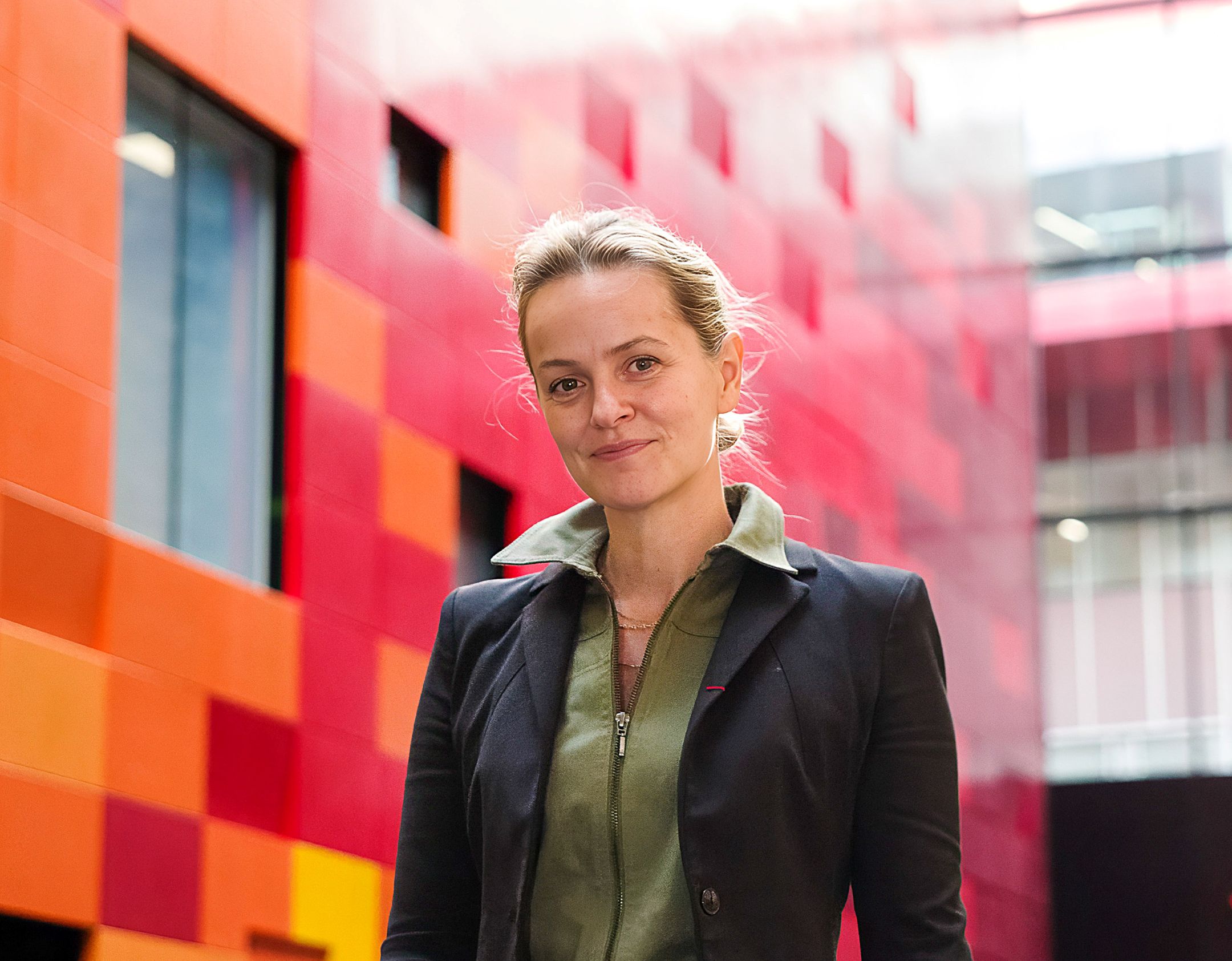 Interview
Financing
Interview
Financing
Cécile Maisonneuve: Found In Translation
The Mobility Times meets with Cécile Maisonneuve, a climate transition expert who builds bridges between science, industry and public services.
-
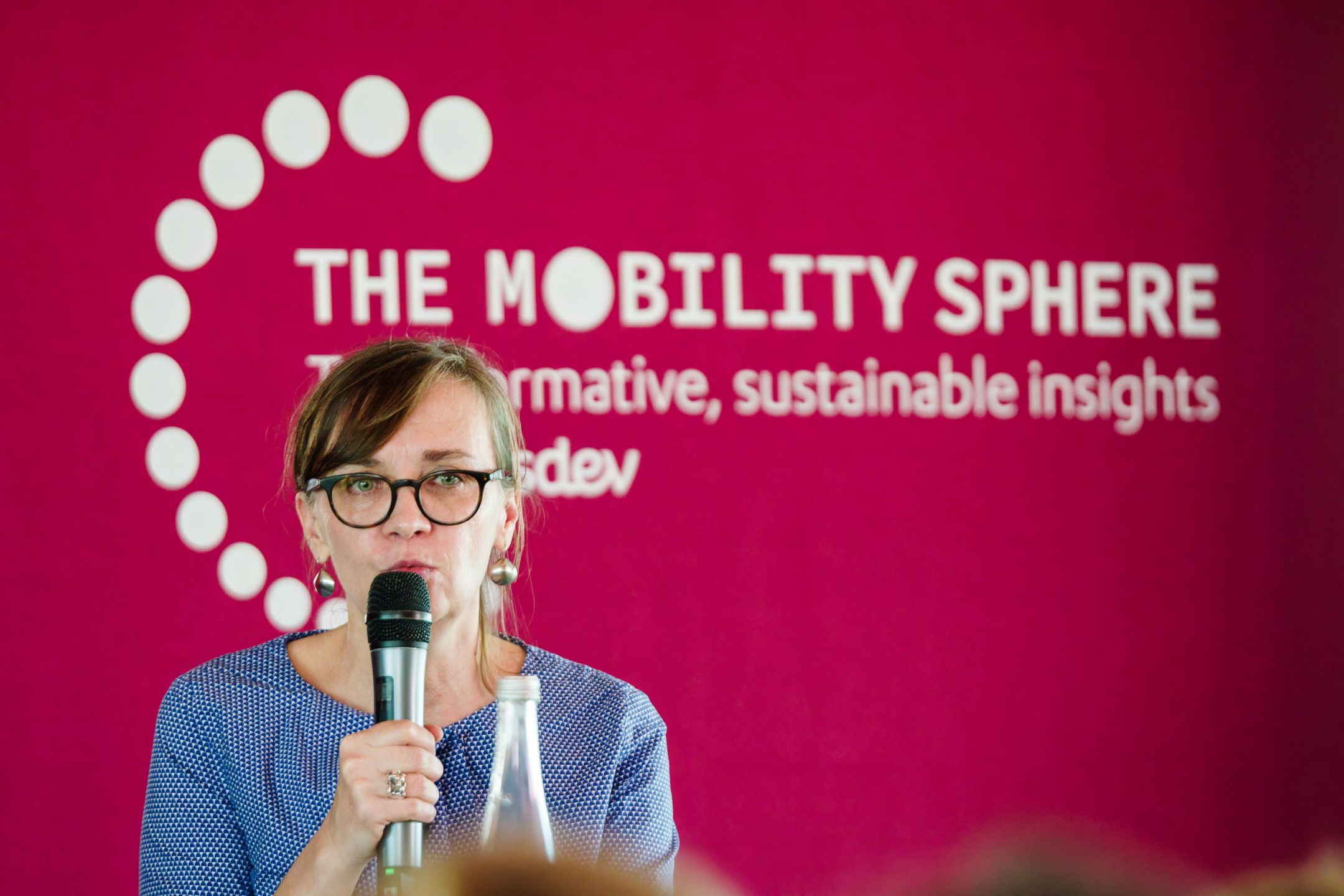 Interview
Decarbonization
Interview
Decarbonization
Combining ambitious climate goals with pragmatic policies
Carole Labbé, Economic Counsellor at the Representation of the European Commission in Paris, talks to The Mobility Times about how the decarbonization of transportation is at the heart of the EU’s climate agenda.
-
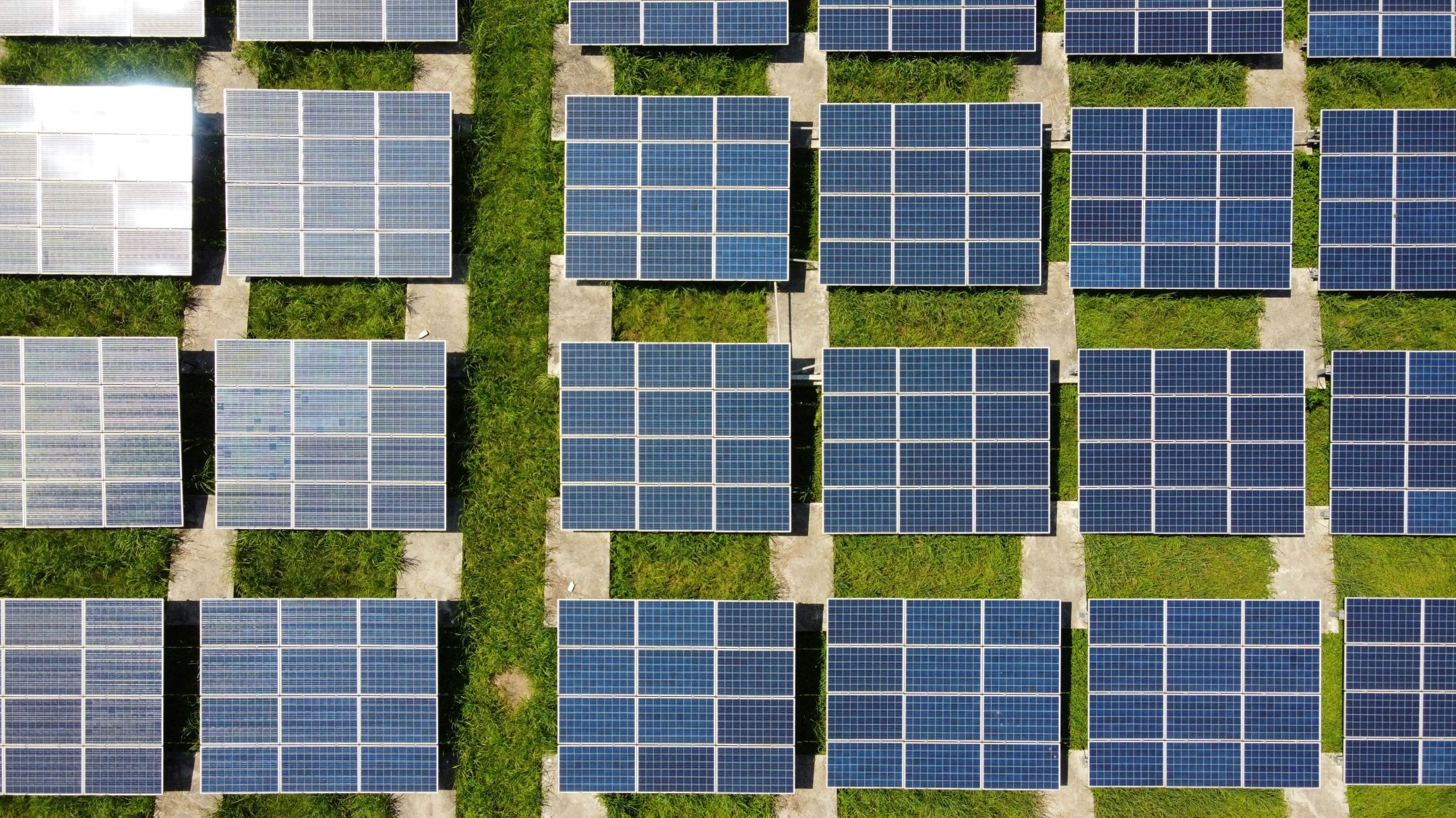 Inspiration
Inspiration
Innovative Finance: Crowdfunding solar power in Portugal
The Akuo group and Lendosphere launched a crowdfunding campaign for the expansion of the Santas solar plant, one of the largest in Portugal.
-
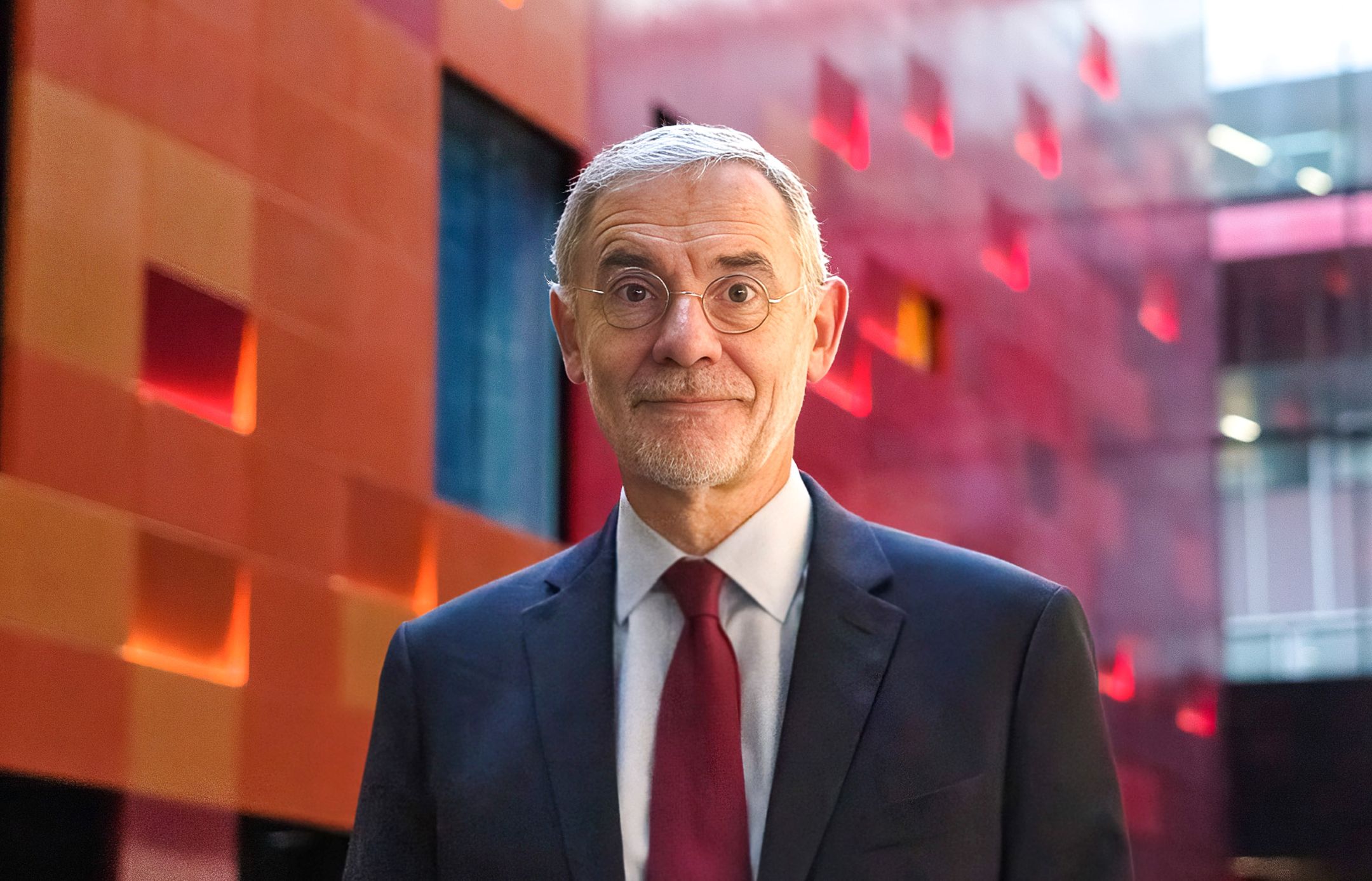 Interview
Access
Interview
Access
‘Daily mobility is the top priority’: an interview with Transdev Group CEO Thierry Mallet
Insights on improving mobility outside of city centers.
-
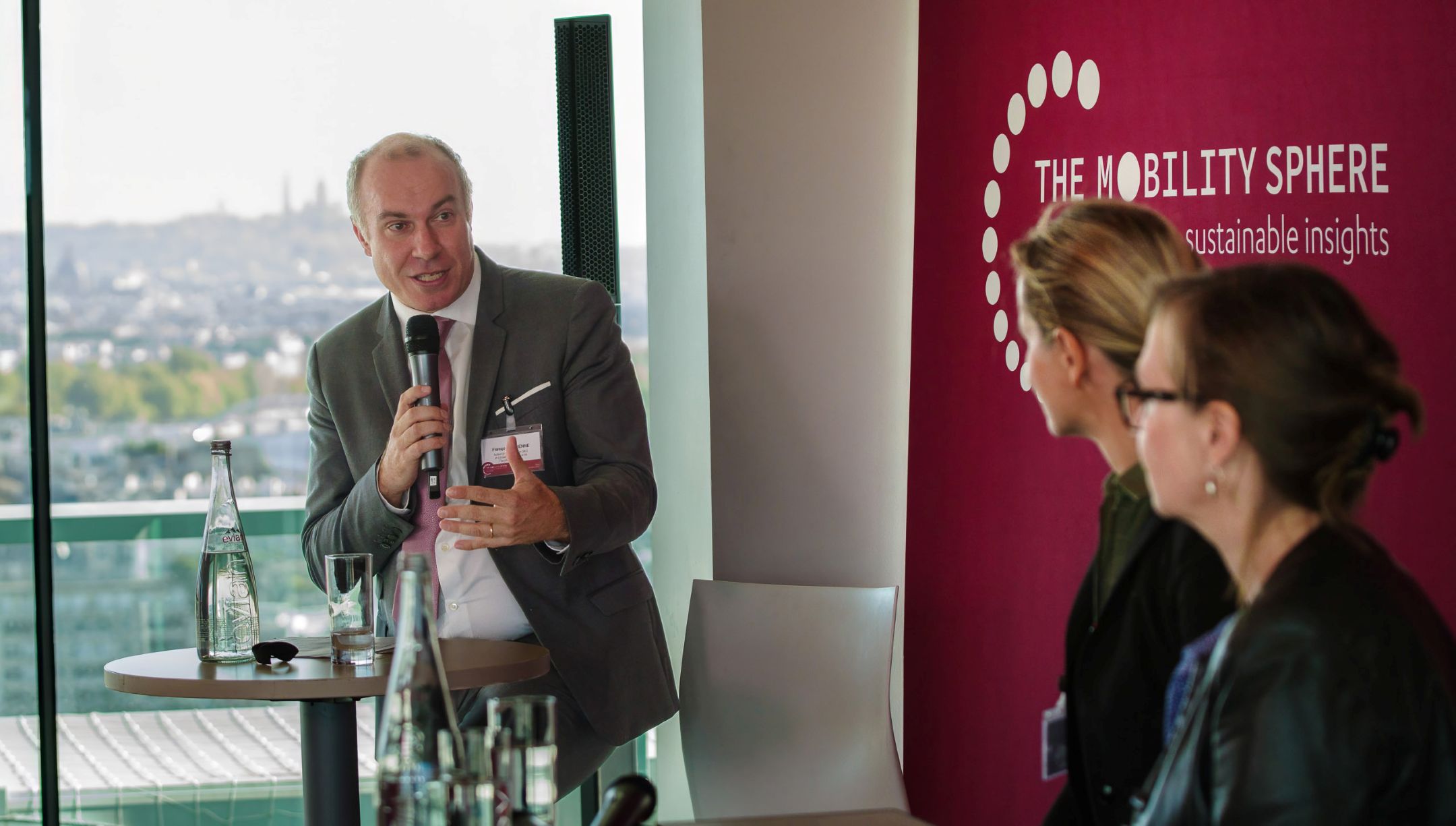 Insights
Cars
Insights
Cars
How can we fund the green transition in Europe?
Climate expert and IPCC Lead Author François Gemenne addressed one of the biggest challenges of our time: how to finance the transition.
